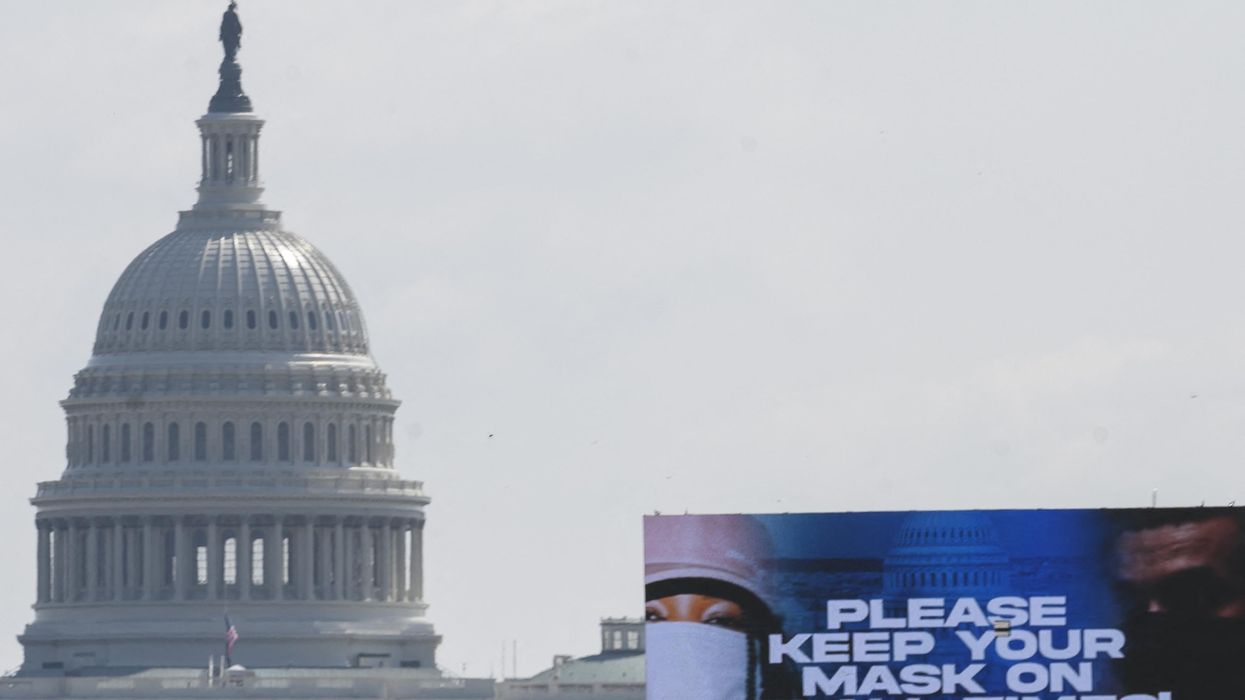Etelson is the author of “ Beyond Contempt: How Liberals Can Communicate Across the Great Divide ” and co-founder of the Rural Urban Bridge Initiative.
In a country so polarized that even a chain restaurant’s menu turns into a culture war food fight, it’s not surprising that we lack a consensus around Covid prevention policies. Covid found not only our public health apparatus wanting, but our public discourse as well. Two and half years in, we are not even attempting to negotiate the sharing of public space by people with widely divergent opinions regarding how dangerous Covid is and how far we should go in trying to protect ourselves and others from it.
Most of us, if we have the luxury of autonomy, order off the a la carte menu whatever precautions we perceive to be the most effective or manageable and then sit in judgment on those who load up their plates with different items. Some won’t dine indoors but will fly on an airplane. Some won’t go to a party but will sit through an indoor concert. Some host an extended family holiday meal but want all students in masks. Everyone thinks they’re right and that those who have calibrated risk differently are wrong.
Not just innocently wrong, but wickedly wrong. I have carefully weighed and fact-checked all the evidence, investigated the credibility of all my sources, fine-tuned my moral compass and drawn the correct conclusion. I value health and longevity versus pleasurable experiences the correct and proper amount. They have drawn the wrong conclusion because they, unlike me, are motivated by selfishness, neuroticism, disinformation and/or in-group conformity bias. They are ignorant. They are virtue-signaling. They are fascists. They don’t care about students’ well-being. They are gullible conspiracists. They cower in fear. They are being duped by bad actors.
Who is the “they” being castigated? Anti-vaccine “fanatics”? Zero-Covid “zealots”? It could be anyone, and that’s the point. In each epithet, one can see the shape of one’s adversary.
The virus mutates; new information about survival rates, natural immunity, and vaccine and mask efficacy becomes available; and many of us recalibrate accordingly but, whenever we do so, we are right once again and those who recalibrated differently are catastrophically mistaken.
The stakes of being wrong are high and so, naturally, resentment toward those who err is intense. There is a powerful desire to convince The Wrong of the error of their ways and intense irritation that they still just don’t get it or care to get it.
Even now, I imagine readers thinking to themselves: “How dare you both-side this when the other side is so clearly insane. I refuse to dignify the dangerous, ill-informed opinions of fascists and ignoramuses.” The thing is ... it doesn’t matter how right you are if the other side isn’t willing to listen. If the other side feels their needs and concerns are not being acknowledged, they will double-down on their priors and reciprocate with closed-minded ill-will.
What if we all give up the fantasy of overpowering The Wrong with our facts, logic and moral superiority? What if we accept that no one will win this war and, instead, try to negotiate a lasting peace?
What would such a negotiation look like? It begins with trying to understand where people are coming from. Empathy for people who act in ways we see as wrongheaded or harmful is not easy, but it is necessary. Imagine the depths that could be plumbed during a facilitated conversation between an elderly diabetic woman who lost her husband to Covid and a single mother who lost her job as a cashier when her kids’ school switched to remote learning.
Absent empathy, we blame each other for a state of affairs that is intrinsically bad and for which there is no panacea. No matter what restrictions we enact or rescind, there will be Covid deaths, there will be inconveniences and sorely missed experiences, there will be learning losses, there will be loneliness and suffering. Our task is to agree upon the best of the bad options, a process that begins with empathy and leads, hopefully, to creative compromises.
I don’t know what the outcome of such negotiations would be. Maybe there are mask-only and mask-optional flights, concerts and religious services. Maybe there are, as in the early days of the pandemic, special hours for more vulnerable people to shop. Maybe public schools are retrofitted with better ventilation and students given a remote learning option. Maybe free N-95 masks are distributed in all public venues. Once people start listening and brainstorming, ingenious ideas will likely emerge.
Learning how to engage in collective problem-solving could help us repair our pandemic-ravaged social fabric. It would also serve us well when it comes to other heated conflicts regarding the use of public space. For example, on the issue of women’s locker rooms, one side sees the exclusion of trans women with penises from traditionally women-only spaces as transphobic. The other side worries that trans women with penises present the same potential safety risks that having males in those spaces always has. Neither side is willing to acknowledge the other’s legitimate needs for safety, dignity and respect.
Covid isn’t done with us. In terms of death, it’s like having a 9/11 attack every week. The virus is destined to become more – or less – virulent, and the cycle of recalibration and recrimination will begin anew. Divisive politicians and media will prey on our mutual contempt and ramp it up to mobilize their base or boost their ratings. If we don’t negotiate the use of public space, our society will remain sick long after we’ve recovered from Covid.



















Trump & Hegseth gave Mark Kelly a huge 2028 gift